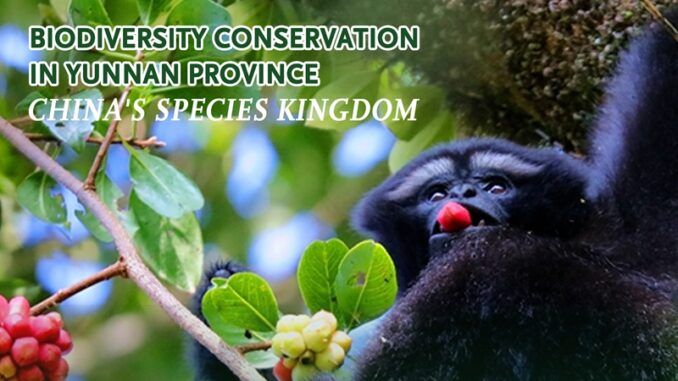
“Preserving wild species is a shared responsibility of all humanity.” In southwest China’s Yunnan Province, researchers say they have found ways to better promote conservation among the public.
From the heart of Yunnan CGTN reporter Zhao Chenchen discovers how locals are turning efforts to protect wild species into paths toward high-quality development.
Known for its rich biodiversity, southwest China’s Yunnan Province has many nicknames – animal kingdom, kingdom of plants, and the world’s garden. But among the proudest achievements is the world’s second largest bank of wild species, established in the capital Kunming 17 years ago.
YI TINGSHUANG Director, Germplasm Bank of Wild Species in Southwest China “Our bank is composed of five major sections including seeds, vitro materials of plants, plant DNA, microbial germplasm resources, and animal germplasm resources.”
As of this year, the bank has collected and preserved over 20,000 types of wild germplasm – the genetic material found in the reproductive cells or tissues of plants. The discovery, research, and protection of germplasm resources are considered extremely important to the conservation of biodiversity. Studies on some of the germplasm have even shown potential therapeutic effects in cancer treatment.
YI TINGSHUANG Director, Germplasm Bank of Wild Species in Southwest China “Now that we’ve preserved so many germplasm resources, the next step is to focus on how to effectively use them to meet the country’s critical needs and benefit humanity. This area requires further strengthening and development.”
Seed banks are one way of preserving wild species, while botanical gardens play an educational role in addition to research.
ZHAO CHENCHEN Pu’er, Yunnan Province “For years, China has been pioneering initiatives to encourage the public to participate in the conservation of wild species. Guiding people to harness the economic potential of conservation efforts is an important aspect.”
SHEN JIANYONG Deputy director, center of gardening and horticulture, Xishuangbanna Tropical Botanical Garden, CAS “For example, we can provide our seed resources to farmers, telling them that the medicinal value of these cultivated resources may be higher so they can cultivate them instead of picking wild ones. This could be a better solution for conservation.”
Preserving wild species is a shared responsibility of all humanity. At the Xishuangbanna Tropical Botanical Garden, a cross-border scientific research project has been established. Experts also aspire to deepen cooperation with international institutes and researchers, contributing to the global biodiversity movement. Zhao Chenchen, CGTN, Pu’er, Yunnan Province. (CGTN)
Source: Chinese Academy of Sciences, Aug 26, 2024. https://english.cas.cn/…/202408/t20240826_684089.shtml